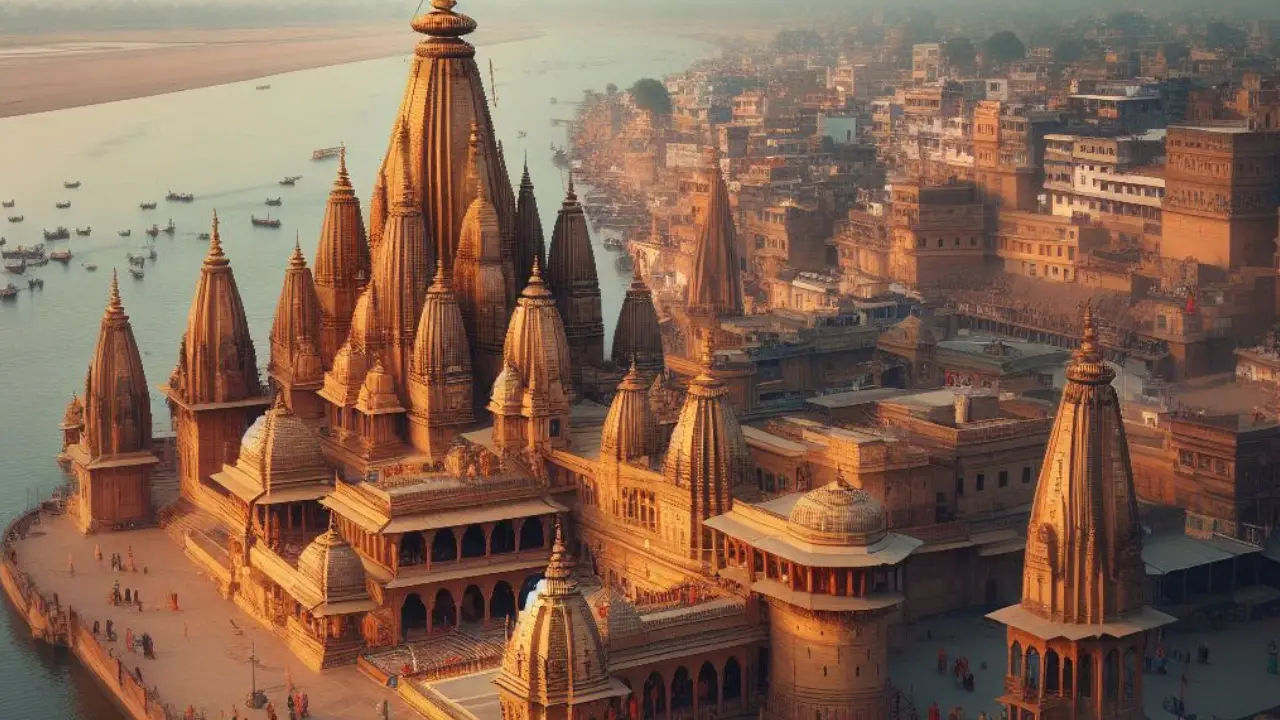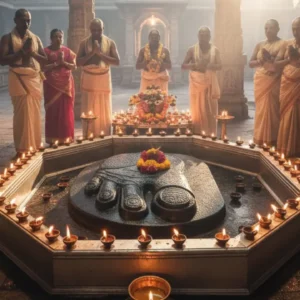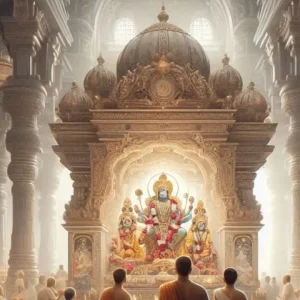India, the land of spirituality and mysticism, is home to numerous temples that are steeped in rich cultural and religious significance. Amongst these, the Kashi Vishwanath Temple stands tall as a beacon of devotion and sanctity. Located in the holy city of Varanasi, this ancient temple dedicated to Lord Shiva is a testament to India’s glorious past and serves as a profound source of spiritual solace for millions of devotees who flock to its hallowed grounds. Join us as we embark on a virtual journey to explore the majestic magnificence of the Kashi Vishwanath Temple.
Origin and Mythological Significance
According to Hindu mythology, Lord Shiva, the supreme deity of destruction and creation, resides in the holy city of Varanasi. Believers consider the Kashi Vishwanath Temple to be the abode of Lord Shiva as Vishwanath, the ruler of the universe. Legend has it that Lord Shiva manifested himself at the spot where the temple stands today, bestowing the gift of immortality to his devotees.
Historical Significance of Kashi Vishwanath Temple
Queen Ahilyabai Holkar of Indore, a Maratha monarch, constructed the Kashi Vishwanath Temple in the 11th century. However, the temple underwent several renovations and reconstructions over the centuries due to various reasons, including destruction by invaders. In the 19th century, Maharaja Ranjit Singh, the late ruler of the princely state of Banaras, undertook a significant renovation that resulted in today’s structure, with its towering spires and intricate carvings.
Architectural Marvel
The Kashi Vishwanath Temple is a striking example of traditional Hindu temple architecture.
Lord Shiva, the main deity, resides within the inner sanctum known as the Garbhagriha. The temple complex features numerous shrines, pavilions, and smaller temples dedicated to various deities associated with Lord Shiva. The intricate carvings on the walls depict mythological tales, gods, and goddesses, which provide a visual feast for the devotees and visitors.
Religious Significance of Kashi Vishwanath Temple
The Kashi Vishwanath Temple holds immense religious significance for Hindus worldwide. People believe that a pilgrimage to this sacred temple, known as the “Golden Temple of Varanasi,” can cleanse one’s soul and bestow blessings upon the devotees. The temple is one of the twelve Jyotirlingas, considered to be the most sacred abodes of Lord Shiva. It is also believed that Lord Shiva himself resided in Varanasi. And that a visit to the Kashi Vishwanath Temple is equivalent to attaining liberation.
Stories and Legends of Kashi Vishwanath Temple
The Kashi Vishwanath Temple is steeped in numerous fascinating stories and legends. One popular legend revolves around the story of Rani Ahilyabai Holkar. The queen planned to reconstruct the temple and faced numerous obstacles, including a lack of funds. In a dream, Lord Vishwanath appeared and directed her to retrieve a hidden treasure to complete the construction. Following his instructions, the queen found the treasure and completed the temple.
Another story tells of the long-standing rivalry between Lord Vishwanath and Lord Krishna. According to the legend, Lord Vishwanath once challenged Lord Krishna to a game of dice. Lord Vishwanath and Lord Krishna made a bet, where if Lord Vishwanath won, he would make Lord Krishna move to Varanasi, but if Lord Krishna won, he would force Lord Vishwanath to leave. Lord Krishna cleverly won the game, and Lord Vishwanath honored the bet by making Varanasi his permanent abode.
Devotee Experience
The experience of being in the presence of Lord Shiva at the Kashi Vishwanath Temple is indescribable. The rhythmic chants, the fragrance of incense, and the profound devotion that fills the air create an ambiance of spirituality and tranquility. Devotees from all walks of life gather here to offer prayers, perform rituals, and seek divine blessings. Devotees intensely venerate and show deep devotion to the temple’s inner sanctum, where they the Shivalinga is the focal point.
Preservation and Modern Amenities
To accommodate the growing number of devotees, the temple administration has taken measures to enhance the facilities and maintain the sanctity of the shrine. The authorities have undertaken several initiatives. These include the construction of a sprawling corridor surrounding the temple complex, improving security measures, and providing better amenities for pilgrims. These efforts have streamlined the darshan (viewing) process, making it more accessible to devotees.
Conclusion
The Kashi Vishwanath Temple is not merely a place of worship but a living testament to India’s rich cultural and religious heritage. It represents the eternal connection between humans and the divine, offering solace and spiritual upliftment to all who seek it. A visit to this sacred abode is a transformative experience. Itlingers in the hearts of devotees long after they leave its hallowed grounds.





